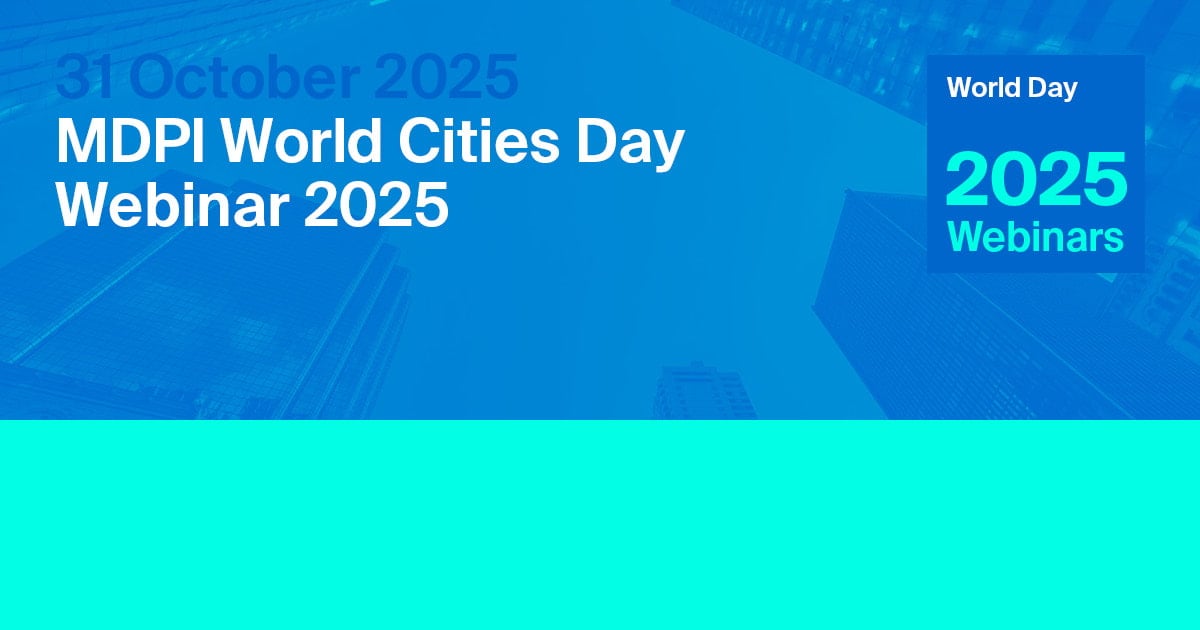- 5.5Impact Factor
- 14.7CiteScore
- 26 daysTime to First Decision
News & Conferences
Latest News & Announcements
Latest Conferences
Propose a Conference Collaboration
Promote and publicise your upcoming conference with MDPI.
All News & Conferences
News & Announcements
MDPI’s Newly Launched Journals in December 2025
9 January 2026
News & Announcements
Meet Us at the Transportation Research Board (TRB) Annual Meeting 2026, 11–15 January 2026, Washington, D.C., USA
17 December 2025
News & Announcements
Article Layout and Template Revised for Future Volumes
11 December 2025
News & Announcements
Smart Cities | Scope and Section Update
21 November 2025
News & Announcements
World Science Day for Peace and Development, 10 November 2025
10 November 2025
News & Announcements
MDPI Launches the Michele Parrinello Award for Pioneering Contributions in Computational Physical Science
6 November 2025
News & Announcements
MDPI INSIGHTS: The CEO's Letter #28 - WSF11, Nobel Laureates, Proofig AI, Romania Summit, STM and FBF
4 November 2025
News & Announcements
World Cities Day—“People-Centred Smart Cities”, 31 October 2025
30 October 2025
News & Announcements
MDPI Webinar | World Cities Day, 31 October 2025
29 October 2025
MDPI Conference
MDPI Webinar | World Cities Day, 31 October 2025
31 - 31 October 2025
News & Announcements
World Development Information Day, 24 October 2025
23 October 2025
of 13







